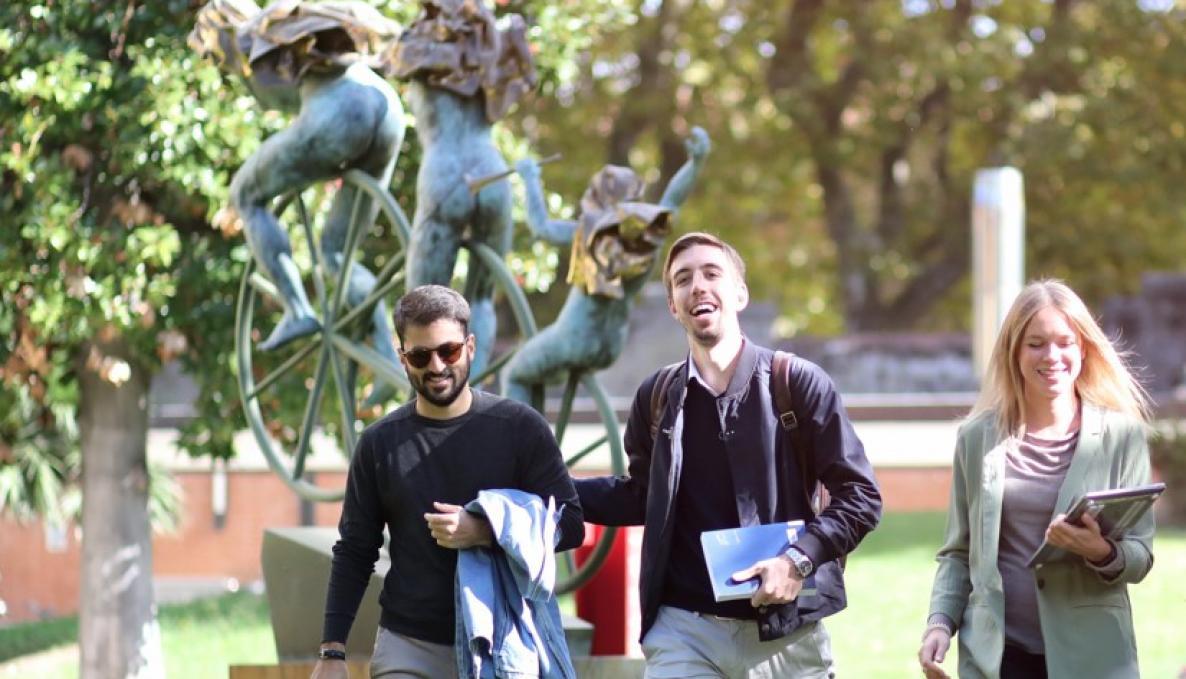Seasonal School, the intensive courses “of excellence”: from business models for the safeguard of biodiversity to the climate change’s challenges, the program for the first months of 2025. How to apply, all the reductions of the enrolment fee

Subscriptions will be open until December 8th on the School’s website, where you can also consult the detailed and updated agenda for each Seasonal School: BRI - Biodiversity and Business: from Research to Impact (onsite classes from January 27th to 31st); CISOD - Cibo, sostenibilità e diritti (on site classes from February 3rd to 7th); DS Inno - Data Science driven INNOvation in business and society (on site classes from February 10th to 14th); ECLIRE - The Ethics of Climate Change: Reshaping Responsibilities for Present and Future Generations (on site classes from February 24th to 28rd).
A reduction in the enrolment fee is available based on the applicant’s ISEE or equivalent certification of income as indicated in the call (for students enrolled in a foreign University). A 450€ scholarship provided by Fondazione Il Talento all’Opera ente filantropico and by EY Foundation Ente Filantropico T.S. will be assigned to the best performing participants of each course. Students coming from universities or institutions with specific agreements with Sant’Anna School are entitled to reserved places and to a 10% reduction in the enrolment costs. Affiliated Institutions: Università di Catania; Università della Tuscia; Università di Trento; Fondazione Onaosi; Università di Messina; Università di Camerino; Università della Calabria; Conferenza dei Collegi Universitari di Merito; Università di Palermo; Università Della Valle D'Aosta; Libera Università di Bolzano; Università Politecnica delle Marche; Università di Siena; Scuola Galileiana di Studi Superiori; Università di Pisa; Università di Firenze.
Applications for the Seasonal School BRI - Biodiversity and Business: from Research to Impact will be open until December 8th, 2024 and classes will take place in presence from January 27th to 31st, 2025. The protection of biodiversity is a global challenge, and the EU aims to lead the way in reversing its loss through its 2030 Biodiversity Strategy. Businesses play a crucial role in developing a model that safeguards and regenerates biodiversity and the ecosystem services they provide. The Seasonal School "Biodiversity and Business: from Research to Impact" is dedicated to tackling the global challenge of biodiversity protection and promoting a regenerative economic development model. The objectives of the Seasonal School are as follows: examine and promote a development model capable of protecting and regenerating biodiversity and the services that ecosystems provide, from a perspective of regenerative economic development; provide participants with stimuli and tools to understand and measure the impact of business on biodiversity; evaluate risks and opportunities and foster technological and organizational innovation, encouraging the development of new technological and organizational solutions that foster a regenerative economy that protects natural capital.
Applications for the Seasonal School CISOD - Cibo, sostenibilità e diritti will be open until December 8th, 2024 and classes will take place in presence from February 3rd to 7th, 2025. The Seasonal School will introduce participants to the topic of food sustainability, exploring how to build sustainable and climate-resilient agri-food systems through a dialogue between social and life sciences. Regulatory and non-regulatory measures for socially inclusive and environmentally more efficient food systems will be addressed. The policy and legal implications of the transformative approach recently taken by the EU with the European Green Deal and the shift towards more sustainable solutions in a Farm to Fork perspective will be thoroughly analysed during the Seasonal School. Topics such as food security and the right to food, food safety, international trade, digital innovation and blockchain will be at a centre stage. Moreover, issues linked to farming and consumption models will be taken into consideration through seminars given by scholars from the life science Institute.
Applications for the Seasonal School DS Inno - Data Science driven INNOvation in business and society will be open until December 8th, 2024 and classes will take place in presence from February 10th to 14th, 2025. Due to technological advancements, increasing digitization, and the development of social media, as well as the widespread use of mobile devices with sensors and apps, the phenomenon of big data is becoming crucial not only for businesses but also for many sectors and society as a whole. Consequently, acquiring specific skills to effectively leverage the abundance of data in business innovation environments is particularly important. This Seasonal School aims to examine the relationship between innovation management and data science through a multi-level approach. First, this relationship will be explored at the company level through not only theoretical knowledge but especially through firsthand testimonials and site visits to large and small enterprises. Second, this relationship will be addressed at the sector level (e.g., healthcare and pharmaceuticals) and finally at the social level by presenting some direct experiences of computer scientists. To conclude, participants will also be provided with stimuli and tools of data science to understand and measure the complexity of this relationship.
Applications for the Seasonal School ECLIRE - THE ETHICS OF CLIMATE CHANGE: RESHAPING RESPONSIBILITIES FOR PRESENT AND FUTURE GENERATIONS will be open until December 8th, 2024 and classes will take place in presence from February 24th to 28th, 2025. The Seasonal School aims to train participants on the ethics of climate change through a triple perspective: individual, global and intergenerational. It will also do so by opening up to disciplines beyond political and moral philosophy, such as political science, metaphysics, sociology and economics. The overall objective is to provide participants with the normative keys to analyse climate mitigation policies in the light of criteria such as historical responsibility, global asymmetries of economic power and adaptive capacity, and duties of justice towards future generations. The issue of social acceptability and socio-economic consequences will also be taken into account through the contribution of sociologists and social scientists. This will be preceded by an opening day with hard scientists dedicated to the introduction to climate change and the discussion of possible future risk scenarios. The Seasonal School includes interactive face-to-face lectures led by pairs of lecturers, climate policy-making simulations and interdisciplinary workshops.



